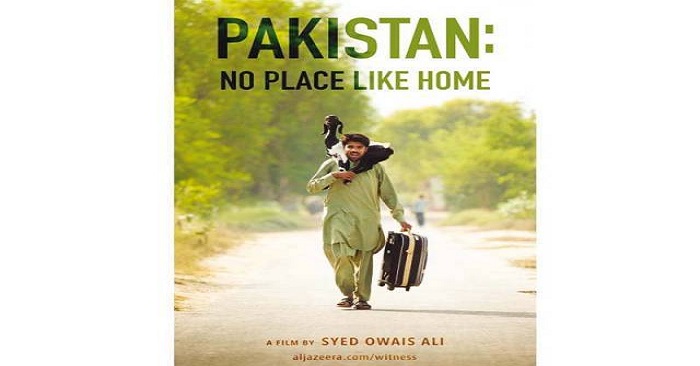A Pakistani student Syed Owais Ali received a grant from the University back in 2014 for making a documentary. Ali is a Pakistani student at Northwestern University in Qatar who decided to highlight the plight of migrant workers in the international media with the project.
According to sources, Ali said ” When I received the grant it was then that, No Place like Home came into being. Before moving to Qatar, I lived in Dubai with my family and often interacted with the migrant workers there. Unsurprisingly, each one of them had a story to tell and I didn’t appreciate the way they had been presented in the international media,” recalled Ali. “I feel like they are just talked about as numbers or statistics. What I have attempted to do through my film is to humanize their story.”
The main character of the documentary is Sharif, it is a true story. He is 28 years old, who has been living in a remote village of Hakimwala in Punjab as a farmer. When Sharif debts kept on increasing due to loss in cultivation of crops, he decided to travel abroad and make money. Sharif family did not support his decision as he was the only person who knew driving in the entire village.
So Sharif sold his Suzuki Mehran and the remaining lands for going to Dubai. It is this journey of Sharif that urged the debut director Syed Owais Ali to make a documentary film in Pakistan: No Place like Home. The film was picked up by international news channel Al Jazeera English just recently.
The documentary followed Sharif when he left Hakimwala and entered a foreign land for the first time in his life. Ali said to media that “We need to understand the motivations behind their actions. There are many factors at play here … Some of them need to pay back debts, others have to support their families.”
Ali decided to record Sharif’s life after every three months by visiting him, as Ali also had classes to attend at the university. But just after four months Sharif went back to Pakistan.
Ali shared that “Interestingly, Sharif’s friend Zubair — who had also left Hakimwala at the same time — had decided to stay back in Dubai. I already knew it would be difficult for Sharif to adjust. Zubair may be shy but he is more strong-willed than Sharif, who is more outspoken, funny and attached to home,” said Ali. “Still, it was quite surprising that he returned within four months only.”
As Sharif left Ali had to change the entire narrative of Pakistan: No Place like Home had to be changed. Ali willingly obliged and followed up on Sharif’s return to Hakimwala. Soon Ali finished the film with the new narrative and submitted it to his university. Further Ali shared that he was not expecting that movie will be picked by Al- Jazeera it was one of his students at the channel who showed the film to the channel and they contacted him.
The most interesting part is that those who watched this documentary wanted to reach Sharif for helping him. Ali also conducted a fundraiser for buying a new car for Sharif. Ali said, “We raised more money than we even needed and bought him a Suzuki Bolan this time. He can accommodate more people in it.”
Now Ali is working on his new project about what happened after Hakimwala received the new car and how it changed lives. “That’s the power of documentary, isn’t it?” he said, with a smile.
A Documentary Picked up By Al-Jazeerah “Pakistan: No Place Like Home”

no place like home